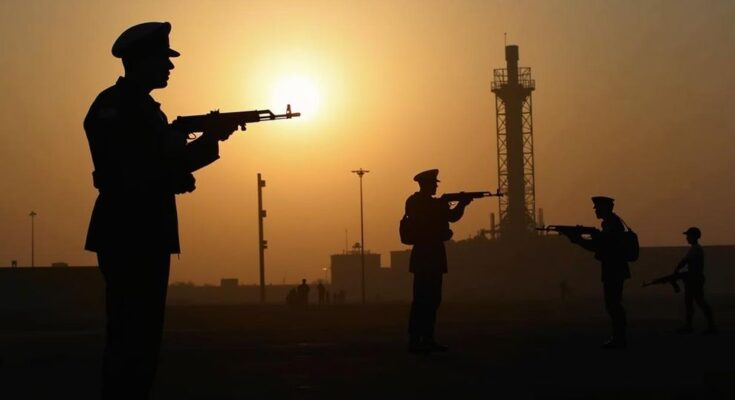Israeli Defense Minister Yoav Gallant warned Iran of dire consequences similar to those seen in Gaza and Beirut, following an Israeli strike that killed at least 21 people in Gaza. Meanwhile, escalating blasts in southern Beirut and ongoing clashes with Hezbollah point to a deteriorating security situation, which has displaced around 1.2 million people in Lebanon and resulted in over 2,000 deaths since early October. International reactions include calls from France to cease arms deliveries to Israel amid accusations from Netanyahu against Macron for these remarks.
On Sunday, Israeli Defense Minister Yoav Gallant issued a stern warning to Iran, suggesting that should the Islamic Republic continue its efforts to harm Israel, the consequences could resemble those seen in Gaza and Beirut. This statement followed a tragic event in central Gaza, where Israeli airstrikes on a mosque claimed the lives of at least 21 individuals, as reported by the Gaza Civil Defence Agency. Meanwhile, Israel has intensified its bombardments in southern Beirut, particularly targeting Hezbollah strongholds, prompting significant explosions in the region. In an international response, French President Emmanuel Macron called on the global community to cease arms deliveries to Israel, criticizing the escalation in Gaza. Israel’s Prime Minister Benjamin Netanyahu condemned Macron’s remarks as bringing “shame” upon him; however, Macron’s office later reaffirmed France’s steadfast support for Israel, labeling Netanyahu’s comments as “excessive.” The humanitarian crisis escalated as around 374,000 individuals fled Lebanon to Syria amidst ongoing aggression, leading to more than 2,000 casualties in Lebanon since the onset of conflict following Hamas’s attack on Israel on October 7 last year. This includes 1,000 fatalities reported within the last week alone. Recently, nine Israeli soldiers have lost their lives in southern Lebanon due to Israel’s ground operations initiated earlier this month. The situation remains critical, with Israeli military forces issuing new evacuation alerts across southern Lebanon and concerns about escalating conflicts with Hezbollah fighters in the border regions. As the region continues to experience unrest, both military and humanitarian implications are becoming increasingly severe, drawing the attention of the international community.
The current escalation in the Middle East, particularly between Israel and Hezbollah, originates from the aftermath of Hamas’s attack on Israel in October of the previous year. Following Israel’s retaliatory actions, there has been a significant increase in military engagement not only in Gaza but also in Lebanon, where Hezbollah has become actively involved in confrontations along the border. This complex geopolitical landscape involves regional powers, humanitarian crises, and international diplomatic tensions, especially concerning arms support and ceasefire negotiations.
In conclusion, the tense situation in the Middle East is characterized by severe military confrontations, a significant humanitarian crisis, and escalating warnings from Israeli officials towards Iran. The international community’s response to this conflict, as exemplified by France’s call to halt arms deliveries to Israel, reflects the complexities of regional alliances and the urgent need for a resolution to avoid further humanitarian suffering and instability.
Original Source: www.france24.com




